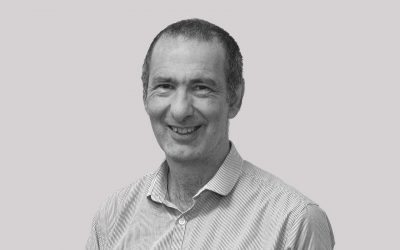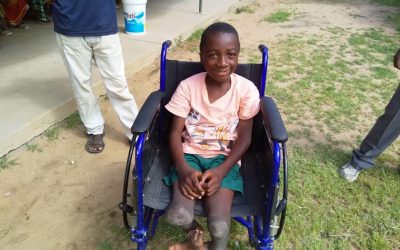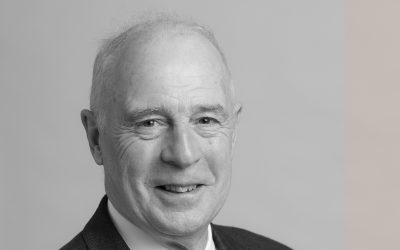I am a 15-year-old girl, homeless, too young to collect benefits, and with a sufficient amount of trauma behind me to severely cloud my perception about life, people and relationships. My life back then was all about survival.
I worked from the ground up in the newspaper industry and swam to the lofty heights of senior management, managing the sales of 28 newspapers in the Midlands and West Country. All this, while my personal life sank into one of fear, isolation and desperate loneliness.
In 1996, aged 33, I started to question the purpose of my life. Selling papers didn’t feel as fulfilling as it used to be and I couldn’t shake the feeling that there was more to life than my current experiences.
I took a sabbatical from work and travelled to the Philippines to think about my future.
In Manila, the first thing I did was to read a newspaper. I read stories about families living in broken down shanties and their homes demolished by bulldozers to make way for new roads.
I wanted to see for myself what a squatter area looked like. I jumped in a taxi and asked him to take me to worst squatter area he knew. The driver wasn’t keen.
I read stories about families living in broken down shanties and their homes demolished by bulldozers to make way for new roads.”
He said it was not safe for white women. I promised to stay inside the taxi, but as soon as we arrived in the Tondo district of Manila and I saw the shanty housing, I jumped out for a closer look.
I couldn’t believe how families could live in these tiny, dark shacks. They were no bigger than a small garden shed, with no electricity, running water or sanitation.
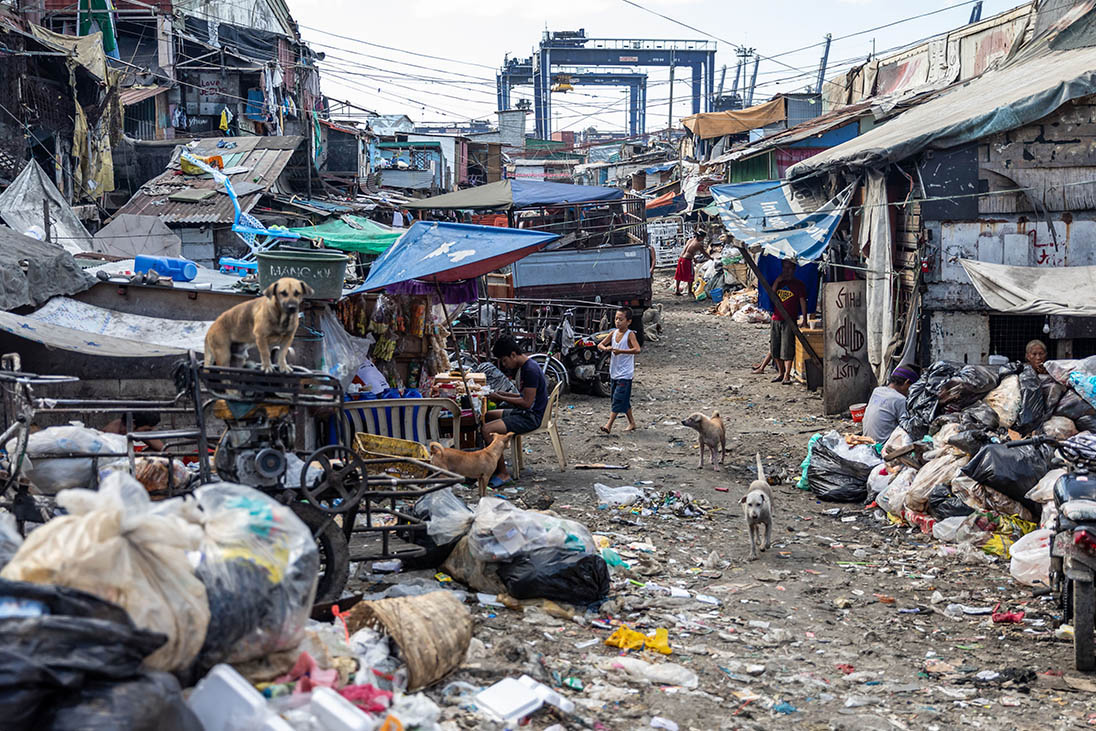

Families living in the rubbish dump in Manila are exposed to unparalleled and unimaginable squalor.
The walls were made with secondhand pieces of wood nailed together with rusty sheets of corrugated metal and an old truck tyre to secure the roof. I felt sick to my stomach to think that entire families were calling these shacks their homes. It hurts to say this, but even our animals live in a better conditions than these families.
I saw two little boys, one dragging a sack behind him, the other swinging a metal hook. I was curious what they were doing and followed them up a dirt track.
I couldn’t believe what I was seeing. Some of the children were as young as two years of age, knee-deep in rubbish, their little bodies covered in cuts and dirt.
They were picking up pieces of plastic and putting them in sacks. The smell from the dump site was so putrid it was difficult to breathe without wincing. Rotting food, hospital waste, decaying carcasses from the abattoirs. All the while, toxic fires and smoke filled the air.
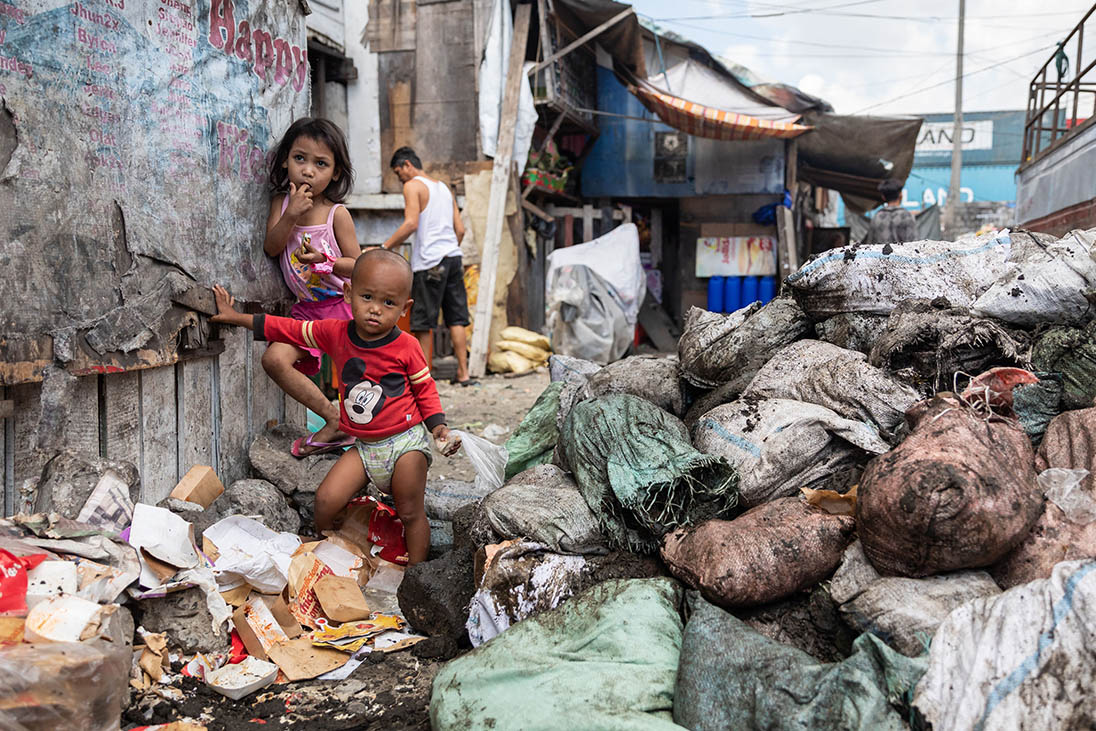

Children as young as two-years-old climb amongst the mounds of rubbish.
There was nothing dignified about this place. But oddly, this was the place where I had my epiphany moment. That moment when I knew I had a choice to help or walk away, a choice that would change the direction for the rest of my life.
When I looked at the faces of the children, I realised they were destined to spend their entire lives living and working in other people’s rubbish, unable to change their own futures. That feeling of hopelessness reminded me how I felt when I was a child, of not being able to stop or change something horrible that what was happening to me. It took me back to a place in my own childhood, a place that I had tried for years to forget.
That moment when I knew I had a choice to help or walk away, a choice that would change the direction for the rest of my life.”
My childhood was complicated, separated by the courts from my sister who went to live with her abusive father.
We remained apart until I was eight-years-old when the courts granted my mother custody. Although I was well provided for, the essential ingredients for a happy secure childhood were definitely missing. The situation in my family was tense. My father’s temper was often out of control, my mother was emotionally unstable and had attempted suicide which, at the age of 12, I had also tried.
When I was 15, my parents gave me an ultimatum to live with my aunt and uncle in Cornwall, or they would hand me over to Social Services because they no longer wanted me to live with them. I, of course, opted to stay with my aunt.
A fresh start, I thought, which ended quickly when my uncle raped me. So I ended up in Bournemouth, Dorset, homeless and alone.
I was lucky. I managed to find a job as a live-in chambermaid in a hotel and, because of that opportunity; I was saved from the untold horrors of living on the streets.
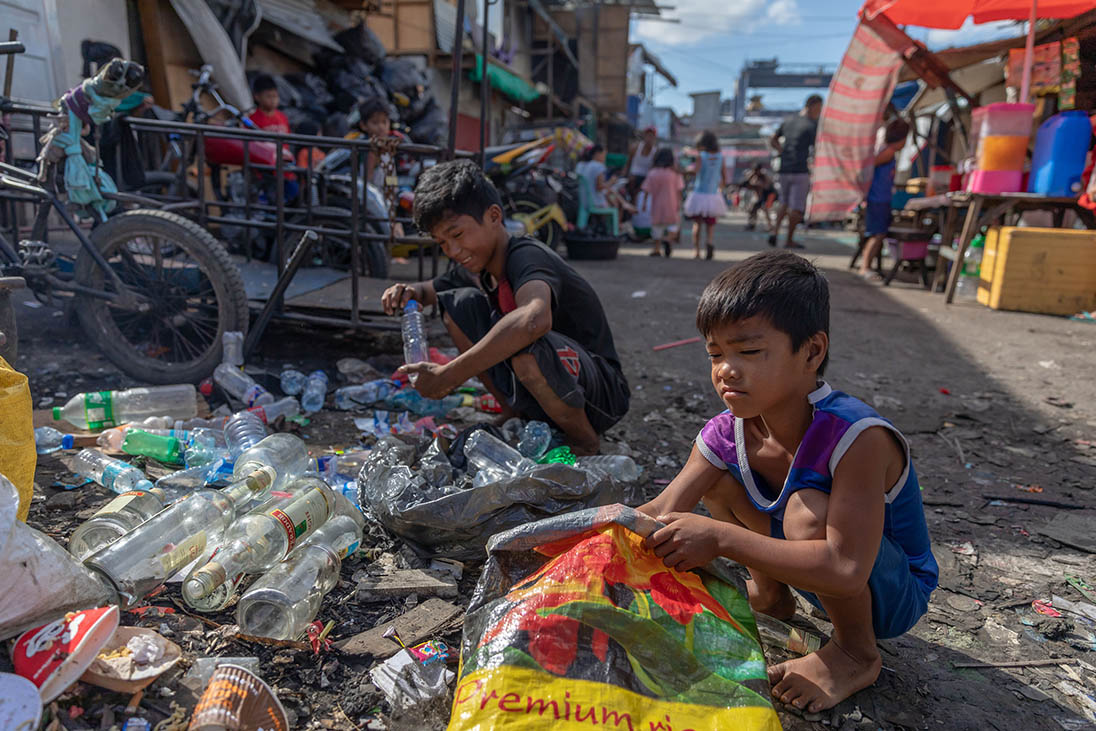

Children earn around 8p by gathering 1kg of used plastic bottles.
Of course, I was haunted by the ghosts of my past, but I found my escape in hard work and, with the aid of recreational drugs and drink, that helped get me through.
Back on the dump site, I looked at these children and could almost feel their despair and hopelessness.
I knew that if I walked away and wished them well, I would be no different from the teachers who didn’t report the bruises, or the doctors who ignored my eating disorder, or the social worker who didn’t believe my stories, and the policewoman who advised me to run away because my uncle would abuse me again.
I was now the professional. If I had walked away – wouldn’t I be the same as all those professionals who had a choice to help me, but who decided not to?
I knew that if I walked away I would be no different from the teachers who didn’t report my bruises, or the social worker who didn’t believe my stories.”
I felt out of my depth, unqualified to help, and maybe the easiest thing to do would have been to walk away, but I knew I would regret that decision. If I cared enough, I would find the courage to try.
I returned to England to learn why there were so many child workers in the Philippines, and what could be done to help the children and their families have a better life.
So I decided to build a small day care centre for 60 children in Tondo using my savings. But I knew this wasn’t going to change the children’s lives so, in 2002, I started my own charity, The Purple Community Fund, to raise money to send them to school.
My sister Andrea was touched by the stories I told her and she decided to help me fund-raise as well.
I went back to the Philippines and asked the parents what they wanted me to do for them. They directed me to an old disused warehouse and suggested I start a school for their children.
I thought the children were forced to work by their parents, but I learnt that it was the children who decided to help their parents.”
We cleaned the building and painted the walls. We bought second-hand pieces of furniture and I posted a sign advertising for teachers. I fed the children one meal a day with snacks, but after three months they were still not gaining any weight.
So I took them to a paediatrician who told me they were riddled with intestinal worms and gave me a chocolate de-worming drink for them.
It was here that I made my first major mistake. I de-wormed over 200 children on a Thursday, so you can imagine what happened when they came to school the next day. Suffice to say, we always worm on a Friday now!
The children kept missing days from school to go to work. I didn’t understand why this was happening so I decided to move onto the dump site and live with the families to learn more about their lives.
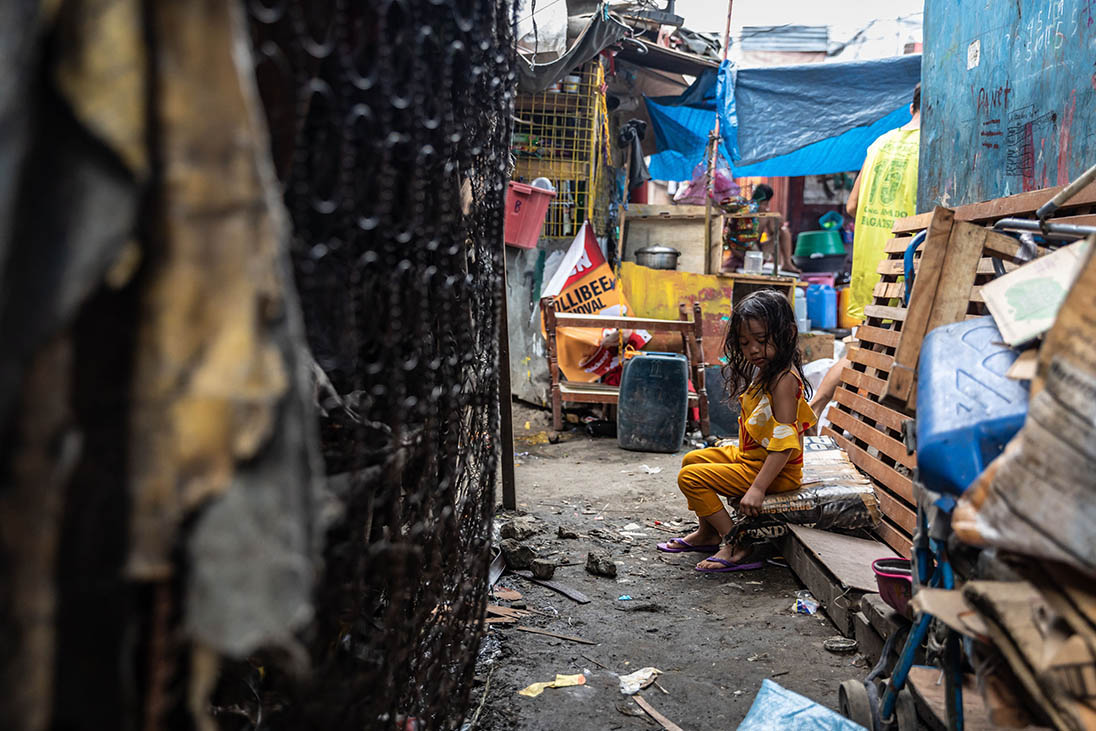

Children understood that if they didn’t work, they didn’t eat. Jane Walker’s dream is to eradicate child labour on the site.
This is where I learned that wonderful things happen when we learn to live and love courageously. I learnt that nothing is as it first seems.
I thought the children were forced to work by their parents, but I learnt that it was the children who decided to help their parents. They understood that if they don’t work, they don’t eat, and so children at a very young age were bearing the weight of adulthood on their young shoulders.
I decided to move onto the dump site and live with the families to learn more about their lives.”
It was robbing them of their childhoods, and yet the children were not resentful, they all worked together as a team.
When I worked on the dump site, the parents and children showed me what pieces of waste to collect. When they realised I didn’t have much waste in my sack, they shared their waste with me.
I learnt how hard their job really was. To be bent down with your face so close to the ground, with all its smells, and staying in that position for almost 10 hours a day.
Physically, it was exhausting. I am pretty sure this is one of the worst jobs in the world.
Plastic bags littered the dumpsite and were filled with human waste, but still everyone shook open these bags in case there was something valuable inside, so I got splattered in excrement.
We soldiered on until it was dark. I was desperate for a hot bath, but instead I washed outside their shanties in a small bowl of cold water, with a piece of soap the size of 10 pence piece. When I looked up, I saw 300 Filipinos watching me.
Plastic bags littered the dumpsite and were filled with human waste, but still everyone shook open these bags in case there was something valuable inside.”
I guess they weren’t used to seeing a white woman washing outside their homes!
I learnt that despite the lack of basic services such as sanitation and running water, families were house proud. They kept their shanties and themselves immaculately clean.
At the end of the day, all the waste was emptied outside of their shanties and separated again into piles which could be sold for a few pennies a kilo.
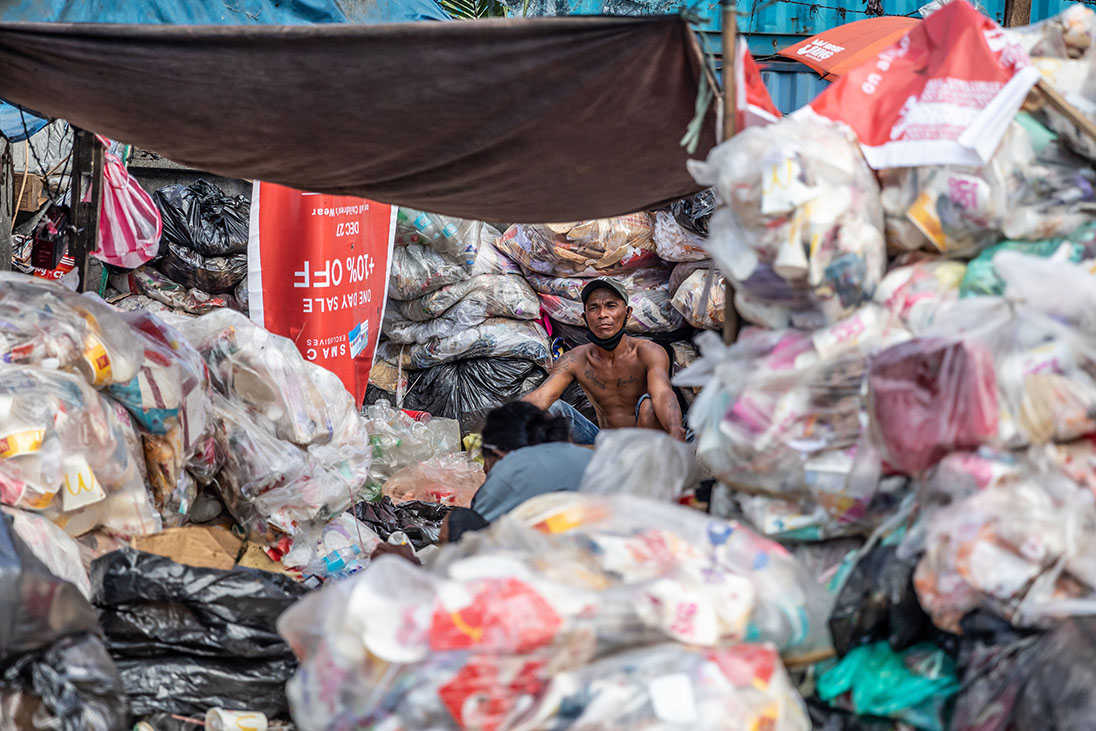

Mountains of plastic bags litter the site with people collecting anything they can which may be of value.
With this money, some rice and noodles were bought for our evening meal. We shared the evening meal on one plate and ate with our hands.
At bedtime the children wrapped up my feet in their clothes because they said the rats sometimes come in and nibble their hard skin.
All through this, the family went about their everyday life. They chatted and laughed, they cleaned up and went to sleep.
They had grown accustomed to living with the rats, the cockroaches and enormous spiders. Diarrhoea, sickness, coughs and colds, as well as skin complaints, were as much part of their lives as making a cup of tea is to us.
Soon I understood how everyone owned their possessions lightly, knowing that fire, eviction, disease or a typhoon could take away everything they have in a second.
They taught me that sometimes life is hard and sometimes it’s not. Everything passes, nothing good or bad lasts forever.
I am in awe of them, full of admiration and respect for them and want the world to see the immense beauty of their spirits.”
It’s pointless to question why, the only thing that lasts is the love they have for each other.
This was a brand new concept for me.
The families seemed to live without bitterness or blame, and I found myself able to let go of the emotions which had kept me bound to my past. I saw beauty in their lives and the lessons I had learnt freed my mind from the thoughts that had tortured me all my life.
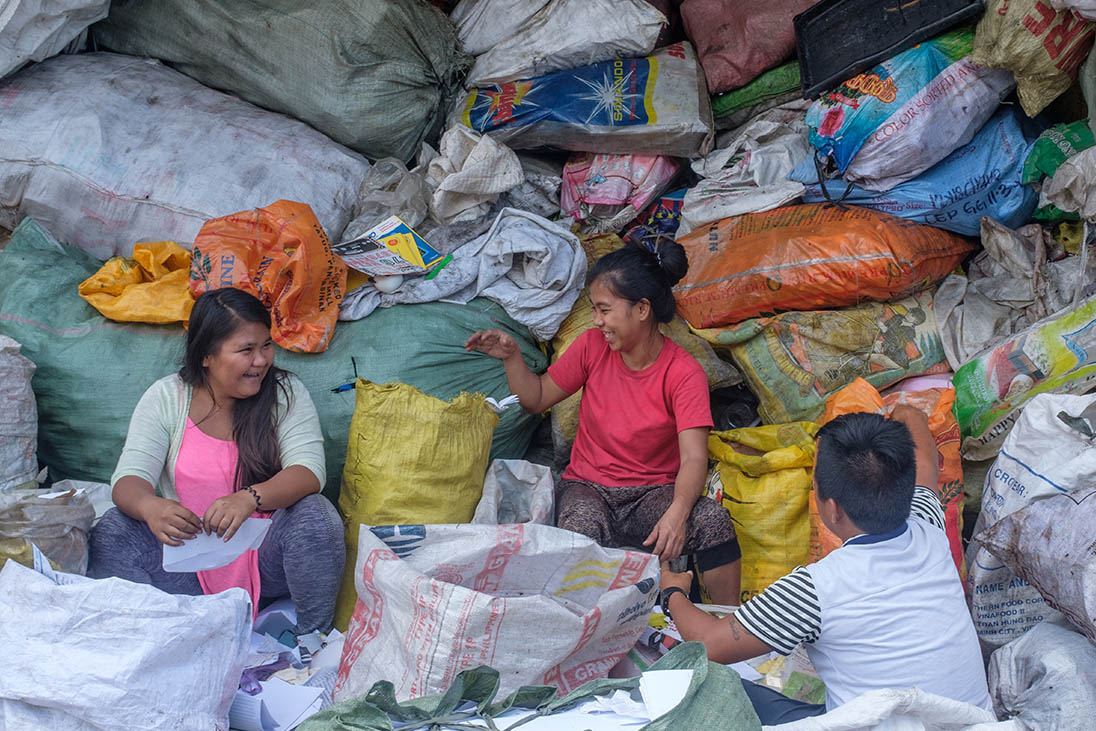

Despite their immense daily struggle and dreadful conditions in Tondo, there remains a sense of community and hope among those who live there.
The more time I spent with the families, the more I learned, the more I discovered many things that they had initially kept hidden from me.
For example, I learned how some of the mothers and teenage girls sold their bodies on the streets to supplement their income, also, how some families had lost children to the pimps and paedophiles who preyed on the dump sites, and how almost every family I met had lost a close family member because of untreated injuries, infection or disease.
How nearly every infant was born severely malnourished and many died. I felt their pain, in a way that even now, nearly 20 years on, has never left me.
Whenever I think about the plight of these poor Filipinos, my heart fills up with love. I become protective towards them.
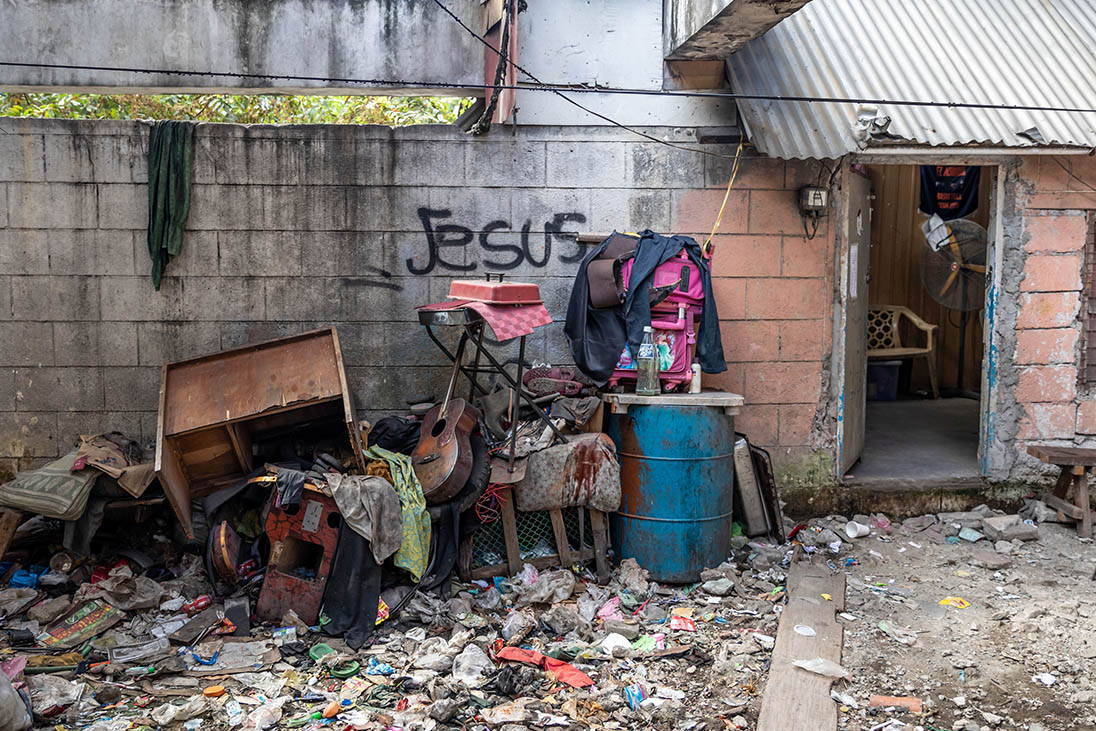

Despite being totally surrounded by waste, those who live on the site are extremely house proud and do everything they can to keep their shanties immaculate.
I want to shield them from any more suffering because no human being should ever have to endure what they have endured and, sadly, continue to endure.
I am in awe of them, full of admiration and respect for them and want the world to see the immense beauty of their spirits.
Meeting them has changed not only my life, but my sister’s too.
More than 100,000 people have been treated through our poverty reduction programmes.”
She gave up a well-paid job to stand by my side, and together we have made it our lives’ work to create a pathway out of poverty for the children and their families.
We built the world’s first school made from 80 x 40 foot recycled shipping containers to educate every child living on the dump site. Now we have educated over 16,000 children.
The school provides local employment.
We have taught a few thousand men and women new skills so they can earn a regular income and provide for their own children.
More than 100,000 people have been treated through our poverty reduction programmes.
And we have created a brand of products made from all sorts of recycled materials which we also sell for them. This provides a regular income for parents.
None of us know the outcome of where a courageous act will take us or the impact it will have. I have come to the conclusion that courageous love not only changes the world we live in, but it also changes us.
To find out more about Purple Community Fund, visit their website.
Alternatively you can get in touch with them via email or telephone on 01489 790219.
All images © Mark Cowlin









